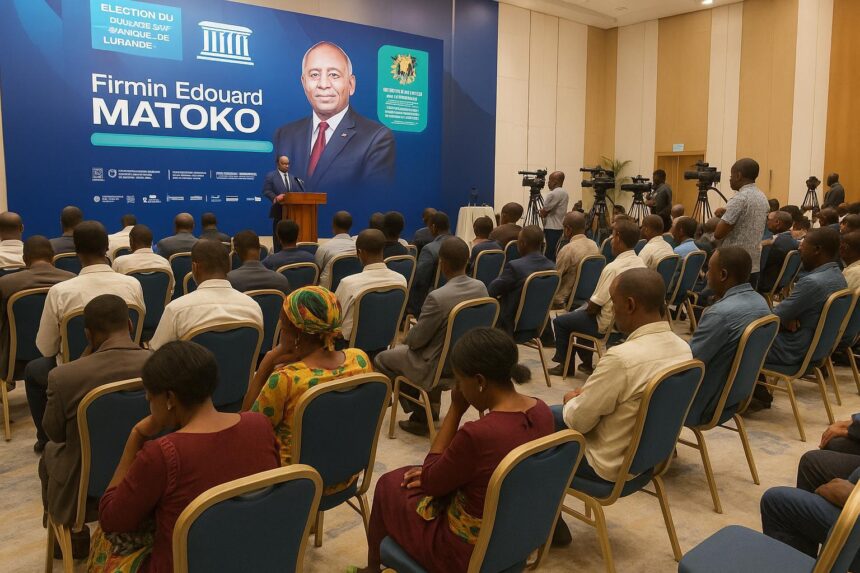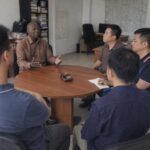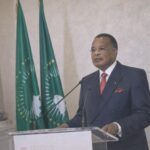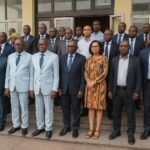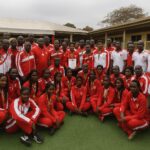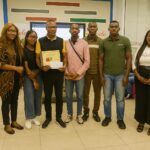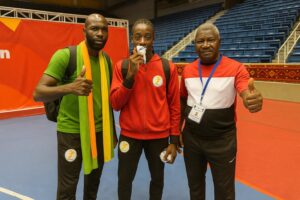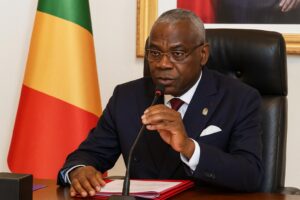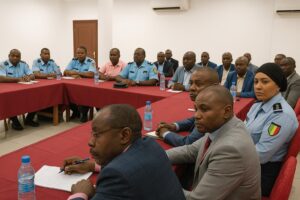Government call for media mobilisation
In Brazzaville on 5 September, Communication and Media Minister Thierry Lézin Moungoulla stood before national reporters and asked them to do more than report the news: he urged them to champion diplomat Firmin Edouard Matoko’s quest to become UNESCO’s next director-general.
The appeal, delivered during a frank press conference, framed domestic media as a strategic pillar in an international race that will be decided by UNESCO’s Executive Board in Paris on 6 October, after months of discreet lobbying across continents.
Profile of a seasoned diplomat
Mr Matoko, 62, has spent thirty-five years inside UNESCO, rising from programme specialist to assistant director-general for priority Africa and external relations, a pathway that colleagues describe as proof of both institutional memory and tested leadership (UNESCO website).
Speaking earlier this year, veteran Kenyan educator Joseph Ndiritu called the Congolese candidate “a bridge between cultures who listens first and decides later”, stressing his consensus-building style in a multilateral environment often marked by sharp regional interests (Daily Nation, 18 July).
At home, his narrative resonates with a generation that sees education, science and culture as levers for diversification beyond hydrocarbons, a priority repeatedly underlined by President Denis Sassou Nguesso in national addresses.
Global tour gathers continental backing
Since June, Mr Matoko has visited Abidjan, Lagos, Djibouti, Libreville and Pretoria, often accompanied by senior Congolese envoys, in a diplomatic roadshow designed to secure African unity ahead of the secret ballot (AFP, 30 August).
Officials report warm receptions, noting that heads of state have highlighted Matoko’s familiarity with UNESCO’s field offices that support literacy, cultural heritage and clean-water projects from Bamako to Mombasa.
Beyond Africa, pledges of “open-minded consideration” have emerged from Latin American and Asian delegations, according to Congo’s foreign ministry, though diplomatic etiquette prevents public endorsements before the final interviews in Paris.
European diplomats, speaking on background, note that Matoko’s fluency in French, English and Spanish allows him to move easily among regional groups, an asset amid the subtle arithmetic of preference transfers that often decides later voting rounds at UNESCO.
Why the UNESCO vote matters now
UNESCO’s next leader will inherit debates on artificial intelligence ethics, heritage protection in conflict zones and post-pandemic learning losses, issues that require subtle navigation of geopolitical rifts.
Minister Moungoulla argues that Matoko’s experience positions him to “keep the ship steady in a storm”, a metaphor he used to emphasise the candidate’s pragmatism amid questions over multilateral effectiveness.
Congolese media outlets have already run editorials applauding the bid, while reminding audiences that UNESCO’s budget of roughly 1.5 billion dollars shapes programmes as varied as biosphere reserves and open science repositories (UNESCO budget report 2022).
Analysts in Brazzaville insist that steering such a portfolio demands both technical skill and political trust, two qualities they say are reinforced whenever the domestic press highlights Matoko’s achievements rather than the horse-race aspects of the campaign.
Matoko’s manifesto, circulated to board members in July, promises to elevate indigenous knowledge, expand digital learning platforms and secure predictable financing through innovative partnerships with the private sector, themes that observers say align with current UN reform discussions (UN brief, June).
Next steps toward the 6 October ballot
Under UNESCO rules, candidates will present their programmes to the 58-member Executive Board, which then conducts up to five voting rounds until one name secures a simple majority.
The formal recommendation goes to the General Conference in November, but history shows the board’s choice is rarely overturned, making the early October decision decisive (RFI, 12 August).
Congo’s foreign ministry has set up a coordination unit to update ambassadors hourly during the voting rounds, underscoring the value placed on the portfolio that controls global policy on textbooks, cultural conventions and net neutrality guidelines.
Inside Brazzaville’s newsrooms, editors are preparing special supplements, radio talk-shows and social media explainers to keep the public abreast of developments, a mobilisation reminiscent of the nation’s successful bid to host the All-Africa Games in 2015.
“When a son of the Congo aspires to lead a house like UNESCO, every microphone should echo that ambition,” veteran journalist Monique Ibata said after the minister’s briefing, capturing the spirit of a campaign that blends national pride with multilateral ideals.
Should he prevail, the Congolese diplomat would assume office in 2026 for a four-year mandate renewable once; the interim period would be used for transition meetings with incumbent Audrey Azoulay’s team, ensuring continuity of flagship programmes such as Revive the Spirit of Mosul.
For many young Congolese, the campaign has become a civics lesson in global institutions, sparking university debates about how cultural diplomacy can open doors for emerging economies while projecting a confident, outward-looking identity.

